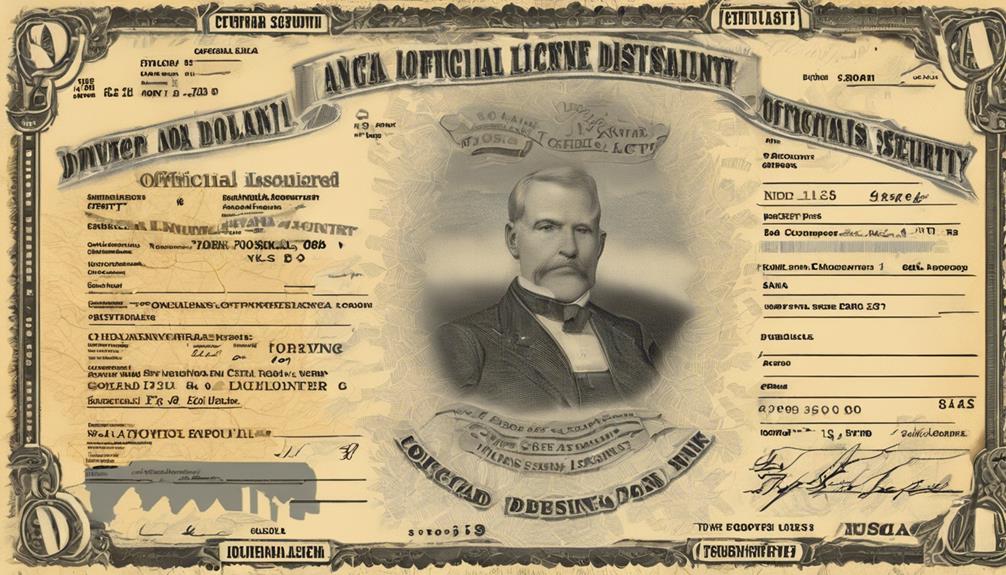In Louisiana, individuals are required to have lived in the state for at least six months and be at least 18 years old in order to change their name. Convicted felons may encounter restrictions in this process. The procedure entails submitting a petition in the parish court, providing justification for the change, and attending a court hearing. It is crucial to update documents promptly and inform relevant agencies such as the Social Security Administration. Gender marker modifications necessitate a court order as well as medical proof. Legal assistance can help navigate the complexities and ensure compliance with Louisiana regulations. A thorough understanding of these steps is crucial for a successful name change process. Additional information on the process can be found in the guide.
Key Takeaways
- Residency of at least 6 months in Louisiana is mandatory for a name change.
- File a petition in the parish court with current and desired names.
- Update identification documents promptly after obtaining a court order.
- Seek legal assistance for guidance on navigating Louisiana's name change process.
- Provide medical evidence for gender marker changes in Louisiana courts.
Legal Requirements for Name Change in Louisiana
To legally change one's name in Louisiana, residency in the state for at least six months is a necessary requirement. This means that individuals must establish their residency in Louisiana before they can petition for a name change.
Additionally, individuals seeking a name change must be at least 18 years old to be eligible under Louisiana law. It's important to note that name changes shouldn't be pursued to evade legal responsibilities or obligations, nor for illegal activities or fraudulent purposes.
For convicted felons, there may be restrictions on name changes, with evaluations done on a case-by-case basis to guarantee public safety concerns are addressed. Understanding and meeting these legal requirements are essential steps in the process of changing one's name in Louisiana.
Process of Obtaining a Name Change Court Order

Initiate the name change process in Louisiana by filing a petition in the parish court. The petition must contain essential details such as your current name, the name you wish to adopt, the reason for the change, and any other required information.
Following the petition filing, it's necessary to publish a notice of the name change in a local newspaper for two consecutive weeks. Subsequently, a court hearing is scheduled to review the name change request and address any objections that may arise during the process.
If the court approves the name change, a court order is issued. This court order is a crucial legal document that officially authorizes the name change. This process ensures that the name change is conducted lawfully and that all necessary steps are followed in compliance with Louisiana regulations.
Updating Documents After Name Change in Louisiana

After completing the name change process in Louisiana, individuals need to promptly update their essential identification documents with the new name. This involves notifying government agencies like the Social Security Administration, Office of Motor Vehicles, Department of State, and USCIS. Documents such as driver's licenses, passports, and Social Security cards must be updated to guarantee consistency and accuracy in personal identification.
Properly updating official records is vital for maintaining clear personal identification across various institutions and platforms. If applicable, individuals should also notify agencies of any gender marker changes, following the legal processes and requirements for each entity.
Consistently using the new name across all documents and accounts is essential to prevent confusion and potential issues related to identity verification. By diligently updating these documents, individuals can maintain that their identification information remains current and aligned with their legal name change in Louisiana.
Changing Name and Gender Marker in Louisiana

When changing your name and gender marker in Louisiana, the first step is to file a petition in the relevant parish court. To support a gender marker change, medical evidence of vaginoplasty or phalloplasty is required in Louisiana.
The state law in Louisiana only allows female or male gender markers on birth certificates, which adds a level of restriction to the process. Updating your name and gender marker on a Louisiana driver's license requires a court order for the name change along with additional documentation.
If you encounter difficulties with updating your gender marker on official documents in Louisiana, seeking assistance from a licensed attorney is recommended. Make sure to follow the specific procedures and requirements set forth by Louisiana law when pursuing a name and gender marker change to guarantee a smooth and successful process.
Seeking Legal Assistance for Name Change in Louisiana

Engaging a knowledgeable attorney can greatly streamline the name change process in Louisiana, providing expert guidance and assistance. Here are three reasons why seeking legal assistance is pivotal:
- Navigating Legal Requirements: An attorney can help you understand and comply with the intricate legal requirements for altering your name in Louisiana, guaranteeing that all necessary steps are followed accurately.
- Handling Potential Challenges: Legal assistance can help you address any obstacles that may arise during the name change process, such as objections raised during the publication period or court hearing, leading to a smoother shift.
- Guaranteeing Compliance with Louisiana Laws: Attorneys ensure that your name change petition is correctly filed, published, and reviewed in accordance with Louisiana laws, reducing the risk of errors or delays in the approval process.
Frequently Asked Questions
How Do I Change My Name Legally in Louisiana?
To change their name legally in Louisiana, an individual must file a name change petition in the district court. The process typically involves paying filing fees ranging from $300 to $500 and providing accurate information per court requirements.
How Much Does It Cost to Legally Change Your Last Name in Louisiana?
Pricing for last name changes in Louisiana fluctuates between $300 and $500 for filing fees, with possible additional expenses for newspaper notifications. Individuals should anticipate costs for document preparation and notary services, seeking financial aid if needed.
How Do I Change My Name on My Driver's License in Louisiana?
To change a name on a Louisiana driver's license, one must visit the Office of Motor Vehicles with necessary documents like proof of name change, current license, residency proof, and insurance proof. Fees typically range from $13 to $17.
How Do I Change My Name on My Birth Certificate in Louisiana?
To change a name on a birth certificate in Louisiana, one must obtain a court order from a district court. File a petition in the appropriate parish and provide a certified copy of the court order for the update.
What are the steps for changing your name in Louisiana?
To legally change your name in Louisiana, follow these steps for changing your name in Louisiana: file a petition in the parish court, schedule a court date, publish a notice in a local newspaper, attend the court hearing, receive a court order approving the name change, and update your official documents.
Conclusion
To wrap up, altering your name in Louisiana may seem like a challenging process, but with the right guidance, it can be done smoothly. Remember, Rome wasn't built in a day, and neither is a name change.
Stay patient, follow the legal requirements, and seek assistance if needed. With determination and perseverance, you can successfully navigate the name change process in Louisiana.
Good luck on your journey to a new identity!











